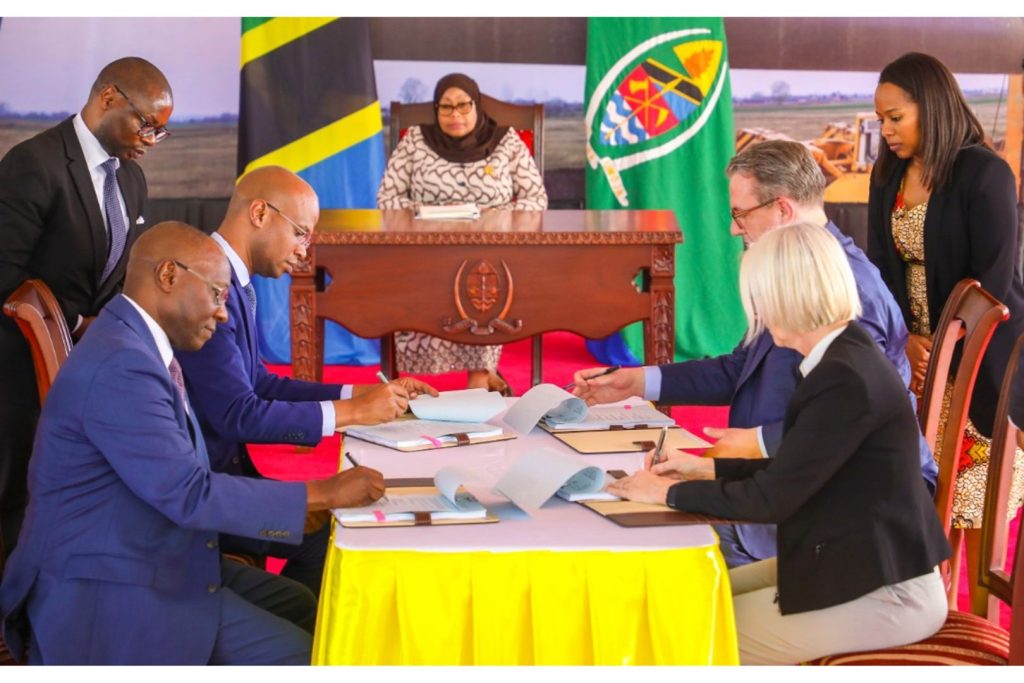It is an indisputable fact that negotiations on contracts, especially those involving oil, gas, minerals, and other natural resources of the country, usually take a long time to complete.
This is especially true for a government that is careful and responsible in protecting its wealth and natural resources. African countries and others worldwide have closely monitored the ongoing negotiations between the Government Negotiating Teams of the United Republic of Tanzania and International energy companies led by Shell and Equinor.
This has been so because of dialogue being repeatedly interrupted by the governments of the countries where these big companies come from. When these companies get stuck in anything, they use their country’s leaders or senior executives to push to get deals done quickly, even if such agreements are negatively conditioned.
There are some past examples related to how companies like Equinor, formerly Norway’s Statoil, sought to force negative contracts in Tanzania until the “Shame Campaign” in their country forced them to change.
Read related: Tanzania’s infrastructure: Tsh 234.512 billion Contracts Signed.
In Mozambique, they were forced to enter into gas extraction contracts that many still view as having an impact on the country, especially in the distribution and use of resources. Companies like Shell are at times known around the world for forcing contracts that do not benefit countries with resources like oil and gas.
Citizens in different countries, especially in Africa, have been eager to know how the ongoing negotiations in Tanzania are particularly viewed. In recent years, Tanzania has become a key country in ensuring impactful deals are given a chance.
Many have witnessed how oil pipeline contracts, known as EACOPS, took time to be negotiated until a compromise was reached.
It is common for discussions to take place in trust between negotiating teams. Still, it is also expected to have before the parties of all sides give their consent and draft offer to know what deals negotiated will benefit the country.
This is because consenting bodies should have access to independent advice so that there is a chance to amend items that in the drafts submitted may not have the quality or fluency required so that the closed contracts do not have an impactful controversy in the country during implementation.
That is why, in various countries like Tanzania, there is a mechanism for the government to review the draft proposals, engage various experts, and consult various policy and operational bodies, including the Attorney General, before sending the recommendations of consent to the Cabinet.
Also, read Natural Gas Vehicles Shouldn’t be the Route Tanzania Takes.
If there are gaps identified in the proposed draft, it is common for discussion teams to be directed to continue discussions to correct the shortcomings noted before implementation.
Recently, there have been some controversial statements made by the U.S. Government that are important to get clarification from the person who provided the information or the companies involved in the discussions.
The first controversial statement was made in Bloomberg on February 28, 2024, written by Paul Burkhardt and Kari Lundgren, and the second was issued in the East African newspaper on 2nd March 2024, written by Bob Karashani.
The first statement calls on the Tanzanian government not to sign contracts for nine months after negotiations are completed. The second report reports a warning issued by the U.S. Government to the Tanzanian government that it will not be trusted if it delays contracts without reason.
One statement is quoted as saying there are “delays which are not in good faith and based on the right reasons.” The writer says, “I am afraid of the signal it will give to other big investors who want to invest in Tanzania if they can’t rely on the government keeping its side of the bargain.”
We, who follow the progress of negotiations, understand that the initial drafts were completed in the fifth month of last year to submit them to the review and quality verification of all parties before consent was given to enter into the relevant agreements. Each side is free to find various explanations and make suggestions for corrections.
The negotiating teams are expected to meet again to conclude discussions based on the government’s instructions. Thus, negotiations have not been completed, and drafts of contracts have yet to be made, which is the final step of approval. The question we have to ask is why the blame has been laid against the government.
Second, why should this blame come from the government and foreign correspondents? Is there a campaign designed to create pressure so that draft contracts that are not mature enough to be signed without negotiations being completed are made?
We know that with the sensitivity of these discussions, all sides of the negotiations should respect confidentiality until they are completed before making a formal statement after receiving the completed drafts after the negotiating teams have jointly informed the conclusion of the discussions and taken into account the instructions of the Government’s analytical and decision-making bodies.
The impression that arises is that there is a conspiracy to derail the discussion by providing misinformation so that the Tanzanian government is hurt.
The relevant companies are aware, as the discussions have not been completed and as the drafts signed last May were to be submitted to the relevant authorities for analysis to determine whether they meet quality and decision-making standards.
This is standard procedure in discussions involving discussion teams. It is good that the relevant companies report this information because the companies that spread the blame against the Government of Tanzania are blamed.


The government must stand firm to project its resources against the greed and exploitative superpowers. And make sure resources benefit it’s citizens. Viva Tanzania